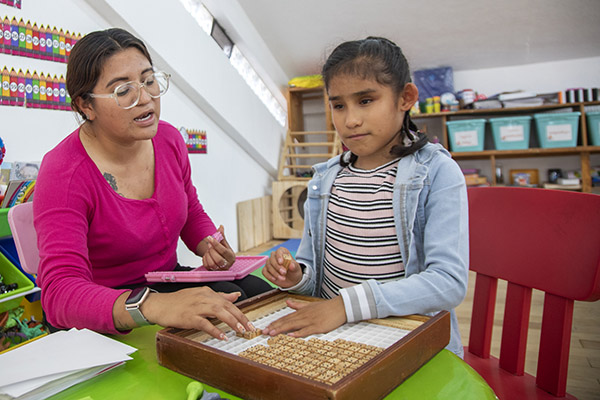Project SEQUEL
Project SEQUEL
Special Educators Qualified to Uplift Exceptional Learners

Project SEQUEL is a U.S. Department of Education Office of Special Education Programs federally funded 5-year grant. The overarching goal of Project SEQUEL is to improve reading, math, and social emotional outcomes for school-age children with disabilities, including children of color with disabilities and children with disabilities who are multilingual by providing 20 outstanding undergraduate scholars with coursework and experiences leading to B.S. in special education and initial certification grades 1-8 in special education.

Benefits
Project SEQUEL scholars receive full tuition, books, technology, conference travel, stipends for daycare and wellness, and professional development. SEQUEL scholars will also receive one year of induction support as they transition into their own classrooms.

Eligibility

Project SEQUEL is open to current Harford County Public Schools (HCPS) employees and Harford Community College (HCC) students interested in employment with HCPS.
To qualify for the program, potential Project SEQUEL scholars must hold an associate degree or equivalent credit hours. Scholars must also have:
- A completed application
- Completion of an associate of science degree or an associates of arts in teaching degree in special education, early childhood education, or elementary education (unofficial transcript)
- Minimum undergraduate major GPA of 3.0
- Resume detailing experience working with children and diverse populations
- Three letters of recommendation: These three letters may be submitted now or later in the interview process. They are not required but highly encouraged. Please include two professional and one personal letter.
- Scholars must commit to the service requirement as outlined by the Department of Education: Service Obligation and Repayment
All materials must be received by the October 15th deadline.
Apply to Project SEQUEL

To complete your Project SEQUEL application, you will need the following before you begin:
- Unofficial transcript for an associate of science degree or an associates of arts in teaching degree in special education, early childhood education, or elementary education
- Resume detailing experience working with children and diverse populations
- Three letters of recommendation: These three letters may be submitted now or later in the interview process. They are not required but highly encouraged. Please include two professional and one personal letter.
- If selected, a virtual interview will be scheduled
Learn about our program — the Bachelor of Science in Special Education
Special Education
Project SEQUEL is offered by the Office of Special Education Programs in the Department of Teaching and Learning within the School of Education.
